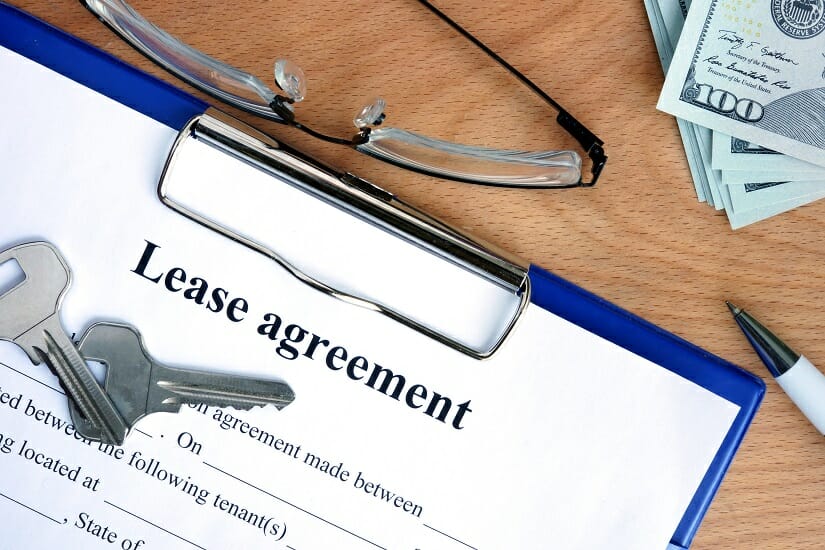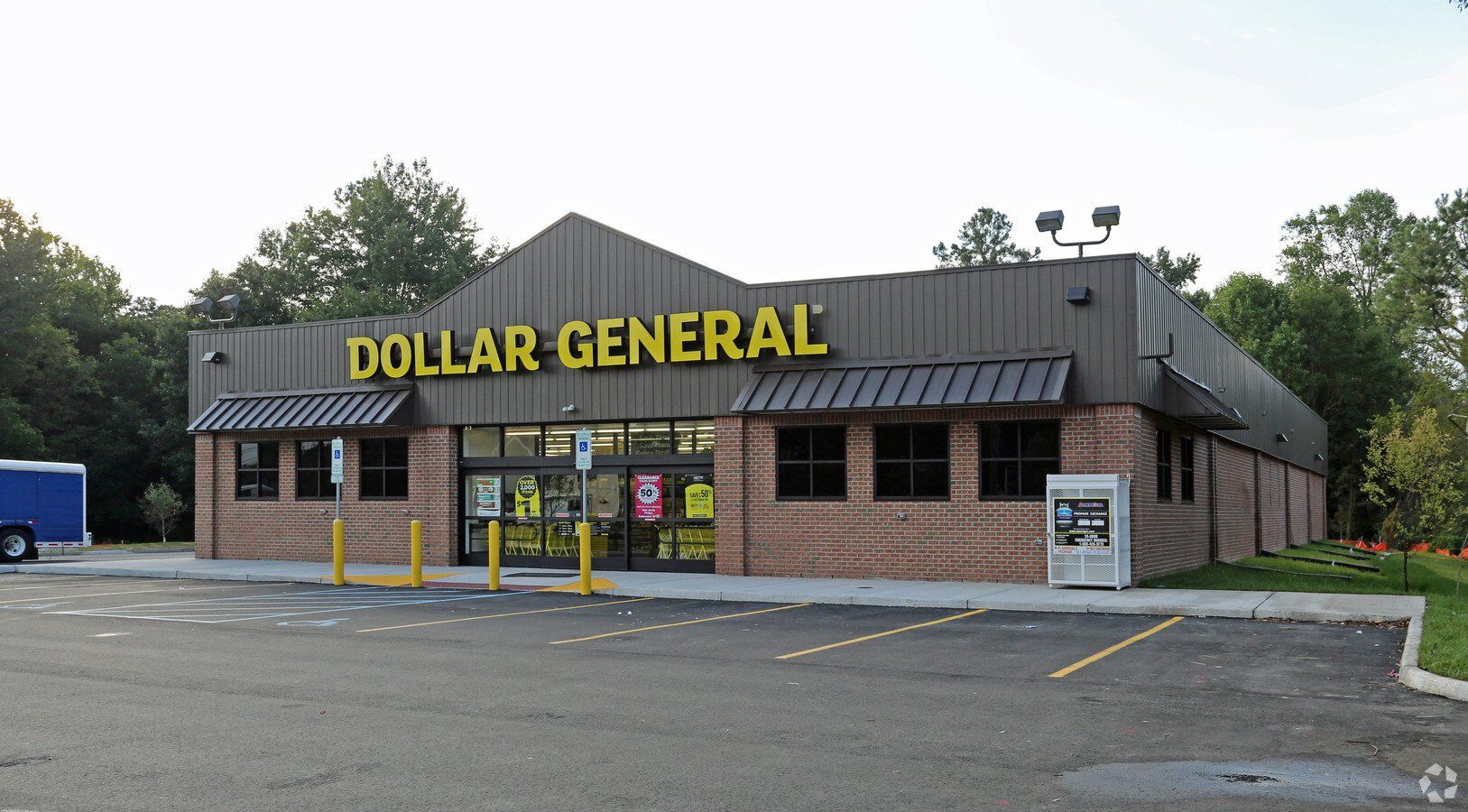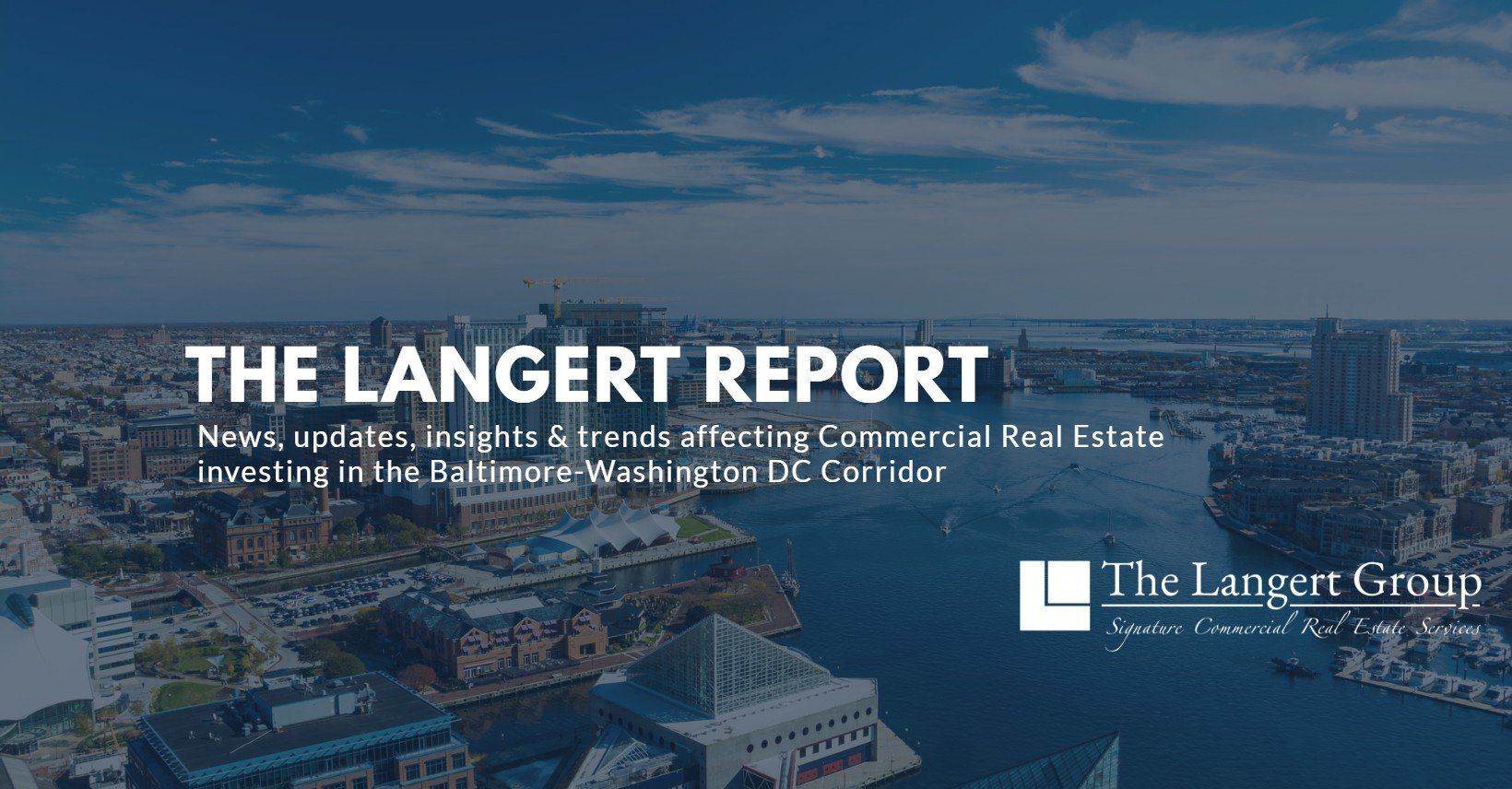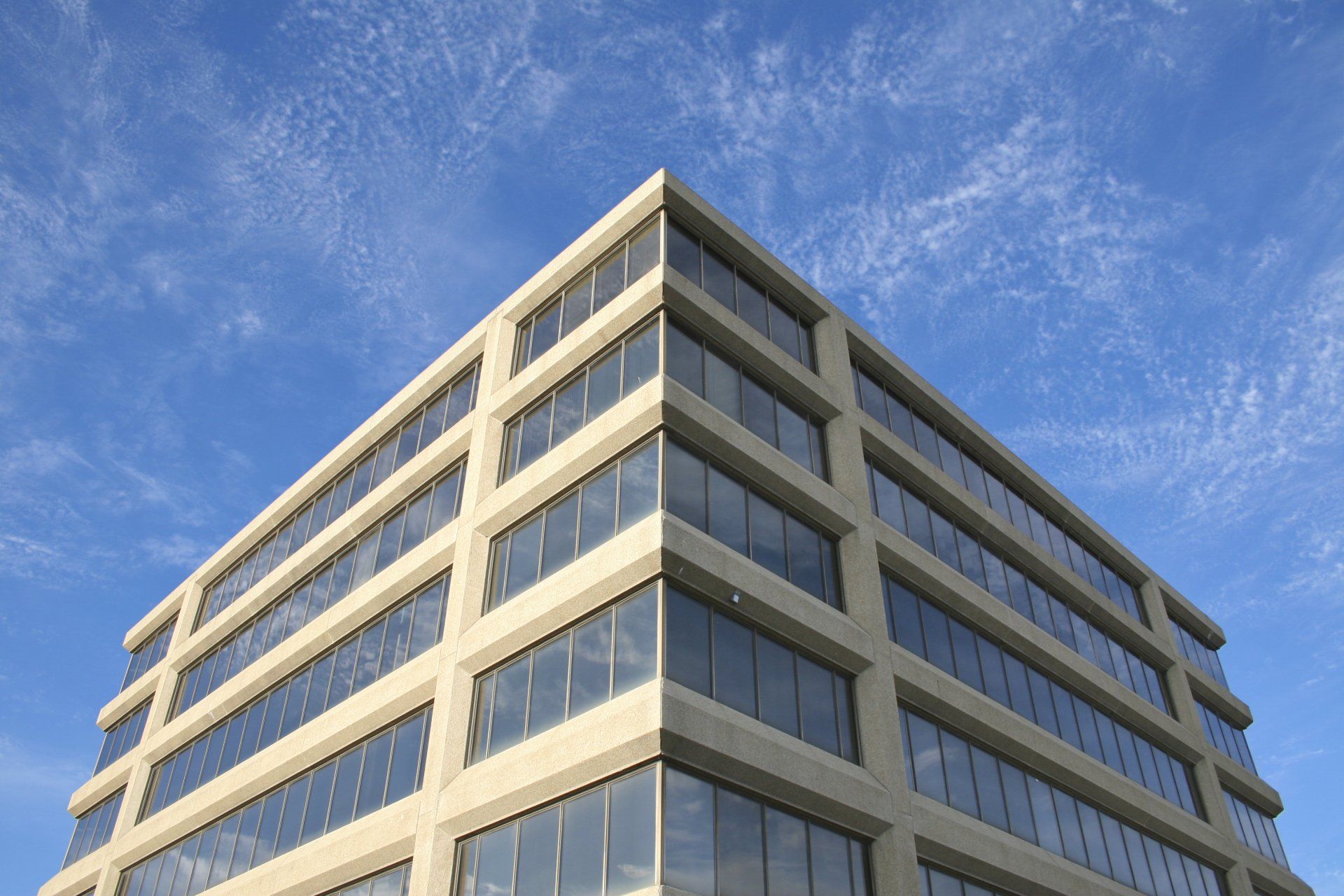TLG Blog
Recent Articles on Maryland Commercial Real Estate

Your commercial real estate lease can be a bit of a mine-field. These documents are drafted by very smart and experienced attorneys. Language is often written such that it appears to give the tenant a right, while more subtle language perhaps even located in a different section of the lease often undermines or mitigates the initial language. Also, what is not in the lease is sometimes just as important as what is contained in the lease. Here are five examples of things that pervade commercial real estate leases: Is There A Landlord Default Section? Most commercial real estate leases include several paragraphs (or even multiple pages) describing what constitutes a default by the tenant and what the landlord's remedies are in the event of a default by the tenant. However, when it comes to landlords defaulting under the lease and the prospective remedies are for a tenant in the event of a landlord default, you will frequently find that the lease doesn't contain one word even stating that it is possible for the landlord to be in default. Default is obviously an important topic or the landlord wouldn't spend so much verbiage describing it when it comes to a tenant default. Yet, when it is the landlord in default and the tenant's remedies that are in play, there isn't a single word about it in many cases. Is There A Landlord Insurance Requirement? Leases typically require the tenant to carry commercial general liability, fire and extended coverage, worker's compensation, business interruption and extra expense, and various other insurance coverage. Further, there is typically language outlining the ratings and other qualifications of the companies through which the tenant may obtain such coverage, There is also usually language describing various clauses that must be contained in the insurance policies of the tenant. However, much like our discussion of Landlord default provisions, there is typically not a single word in a commercial real estate lease requiring the landlord to obtain any insurance coverage at all. Obviously, they need to insure their building against fire and other casualty. Also, a landlord typically operates and manages the property, and can cause a "slip and fall" or other accident damaging person or property just as easily as the tenant can. Yet there is usually not a word even requiring the landlord to have coverage. Can You Assign Your Lease? Sometimes business doesn't go as planned. Retail businesses fail, companies get bought and/or merge with other companies, principals decide to retire. If any of these things happen and you want to find someone else to take over your lease, how easy or hard does the lease make that to do? Most leases say that you can only assign your lease with the landlord's permission. That's understandable. The landlord shouldn't be able to let you just transfer your lease to anyone. However, how tough is it to get their permission? If your lease says that the landlord can withhold its permission "in the landlord's sole and absolute discretion", then they can turn you down for any reason at all. They don't have to be reasonable about it at all. On the other hand, if it says that the landlord can't unreasonably withhold or delay its consent, then the landlord has to be "objectively" reasonable about giving its consent. What Is Your Protection Against Competition? If you open an Italian restaurant in a shopping center, you don't want the landlord to let your staunchest competitor open up two doors away from you. Likewise, if you are a title company leasing first floor space in a prominent office building, you don't want the landlord leasing the space across the hall to your rival. Without specific language in your lease protecting you against these things, your landlord has the right to put whoever he or she wants in the shopping center or office building. Make sure that you have it. We discuss more about exclusive use clauses here . Who Is Building Out Your Space And Who Is Paying For It? If you are occupying a space in an office building or shopping center that needs work done to it prior to your occupancy, who is doing that work...the tenant or the landlord? Likewise, who is paying for that work? Landlords frequently either do some or all of the buildout work in retail or office space. They often pay for some or all of that work via either a "turnkey buildout" or a "tenant improvement allowance". However, they don't advertise those things. You have to know to ask for them, and you or your representative has to know what is typical in the market place. Many times, unsuspecting and inexperienced tenants will take on large costs associated with building out their spaces because they didn't even know that the landlord might participate in the costs. *Nothing contained in this article or newsletter is intended as either brokerage or legal advice. Each deal is different and each lease is different. You are urged to seek professional advice from a competent commercial real estate broker and attorney for advice so that such advice can be dispensed as it pertains to your transaction specifically. Please do not rely on the information in this newsletter as a substitute for such professional advice. Unless we have been hired to represent a client, we accept no liability for anyone's reliance on anything written in this article or this newsletter.

Certainly there are many different types of investments within the commercial real estate arena. Many people invest in apartment projects, office buildings, shopping centers, hotels, and warehouse buildings with a great deal of financial success. So what is the reason that single tenant triple net properties are so popular? There Is Only One Tenant As you can guess from the description, single tenant properties are simply those commercial properties with only one tenant in them. Some examples would be a freestanding Starbuck's, McDonald's, Dollar General, or Verizon store on the retail side. However, they can also include warehouse and office properties. Think about a Fed Ex warehouse or a Verizon headquarters building...those are also single tenant properties. Less Hassle With Collections Second, "triple net" means that the tenant in the property pays all of the taxes, insurance, and maintenance costs of the property. In a "true triple net lease", the tenant is even responsible for the roof and structural portions of the property. So, in an absolute triple net single tenant property, the landlord actually has no responsibilities whatsoever. The investments are sometimes referred to as "mailbox money" because all the landlord theoretically has to do is to collect a check in the mailbox each month. With a shopping center or other multi-tenant triple net property, the tenants may reimburse the landlord for the triple net costs, but the landlord still has to collect those sums from all of the tenants and contract for the provision of most or all of the services provided to the property. Plus, if a tenant moves out, then the landlord has to eat that portion of the triple net charges attributable to the space that the tenant vacated. With a single tenant triple net property, that is usually not the case. Wide Pool Of Buyers Many investors in single tenant triple net properties want the security of a strong real estate investment without all of the management and tenant relations hassles that sometimes come with those properties. Strong Tenants Lease These Spaces Of course, the financial strength and stability of the tenant are of paramount importance because you are relying on a single tenant for your income. That's why strong tenants like Dollar General, CVS, Verizon, Walmart, and others are so popular. Also, the location of the property is still extremely important. After all, there will come a day with basically every property when the tenant will move on to another location, go out of business, etc.. When that happens, you have to have confidence that you will be able to lease the property to another tenant if you still own it. Typically, the cost of a single tenant triple net property (as with any other real estate investment) will vary depending upon the perceived safety of the investment. Factors in the safety of the investment include the strength and stability of the tenant, the length of the lease term, the type of construction (for instance, a specially designed building like a Checkers or a Sonic isn't going to attract most fast food tenants), the location (traffic count, number of households located nearby and the median household income of those households). There is a lot of analysis that goes into finding the right commercial real estate investment, and the same is true with single tenant triple net properties. If you are not a commercial real estate expert, it is highly recommended that you obtain the services of a qualified broker or advisor. If you have additional questions, please don't hesitate to call us.

Yes! Here's Why: Prevent Competition If you are like the vast majority of tenants, then you do not want your competitors opening up in close proximity to your operations. As an example, let's suppose that you wanted to open a pizza restaurant in a large shopping center. Your expectation (if you are like most tenants) would be that there would be no other pizza restaurants in the shopping center other than yours. The bottom line is that, if someone is going to buy pizza in the shopping center that you are in, you want it to be from you. You don't want the landlord to lease a space two doors down to Pizza Hut and then another space three doors further down to Ledo's. This concept is not unique to retail properties, either. If you are opening up a title company on the third floor of an office building filled with lawyers and real estate brokerage companies, you don't want to see the landlord lease prime space in the lobby of the same building to another title company. In both cases, it can cut deeply into the profits of your business. We discuss the importance of this more in 5 Pitfalls In Your Commercial Lease. Landlords Can't Lease to Whoever I've been in this industry for thirty plus years, and I've seen many very upset and very disappointed tenants that relied on the notion (sometimes even unspoken) that "my landlord would never do that to me". The fact is that, if you don't want certain stores or office users in the same shopping center or office building where you are leasing space, then you need to have what is known as an exclusive use clause. Drafted properly, this clause will not allow the landlord to lease any other space in the project to your competitors. The prohibition can be stated in terms of particular offerings (for instance, a prohibition on the landlord leasing any space in the project to any business operation primarily serving pizza. It can also be stated in terms of specific stores. For instance, a learning center may have a clause stating that the landlord cannot lease space to a learning center such as Kumon, Mathnasium, Kaplan, or C3. No matter how it is stated, pay careful attention to the language. Most landlords will keep loopholes in it when they can. Landlords Could Be Penalized For Violation Also, make sure that there is a stated and at least moderately severe penalty in the language in case the landlord breaches that section. Once or twice, I've seen otherwise good exclusive use clauses that have no real penalty set forth in them. For instance, either no penalty is stated at all or the penalty is relatively meaningless. For instance, I've seen several exclusive use clauses where the tenant's only remedy is to terminate its lease. The problem with that is that, if a competitor comes in that the landlord would rather have in the center, it can just lease other space in the center to your competitor. The landlord may have decided that they'd rather have that competitor than you, and they know that your only remedy is to close up shop. Usually, they've made a calculated decision that you likely will close, but they feel that their center will improve overall because they have your competitor in the center instead of you. It is far from unique to local mom and pop tenants to want an exclusive use clause. National and regional tenants usually insist on them. In fact, if you lease a space in a large shopping center with a lot of national tenants, there will usually be an exhibit to your lease listing all of the exclusive use clauses that other tenants of the project have an precluding you from violating any of them. Hire A Professional The old saying is that "an ounce of prevention is worth a pound of cure". A well written exclusive use clause is your ounce of prevention if you want to "protect your turf" in a commercial real estate setting. These clauses can be tricky, so please make sure that you have them drafted by a professional.

There is a curious phenomenon that has puzzled me for most of my thirty year commercial real estate career. Every Fortune 1000 company in the United States uses a commercial real estate broker to find space for them and to negotiate their commercial real estate transactions (whether leases or purchases). Each of them also uses an attorney to negotiate the legal points of their leases and purchase and sale contracts. These are companies that typically hire the "best and brightest" out of Ivy League and other well-regarded schools. Despite the fact that these companies are filled with extremely bright people, they realize that they are not subject matter experts and therefore are not properly equipped to navigate their commercial real estate transactions. Being smart (or even brilliant) is not enough. As the head leasing attorney for a publicly-traded REIT for almost a decade, I've negotiated hundreds of real estate transactions and other contracts. Yet, when someone asks me to negotiate a software license agreement, I decline. Why do I do that? Certainly, I have negotiated enough contracts to be able to handle a contract like that...right? The fact of the matter is that I do not know the terms of art in the software industry. I also don't know the accepted economic and other triggers within the industry, and I'm not familiar with a lot of the legislation that is in place and that affects computer software licensing. In fact, if I applied for a job as an attorney with a software company they would not hire me because they would see me as having no experience in the field. They would be right to think that, and the Fortune 1000 companies realize that they don't have the specific knowledge to properly handle their commercial real estate transactions. The puzzling part to me is that, for whatever reason, at least half of regional and smaller companies and individuals that I've seen out there don't use a commercial real estate broker (especially for leases) and don't use an attorney for their transactions. They think that they can handle the transaction just fine by themselves. Here are several reasons (besides lack of industry knowledge) that I can think of as to why you should use a commercial real estate broker or agent. Sellers And Landlords Usually Pay Tenant And Buyer Brokers If you are a buyer or a tenant, our services are typically at no cost to you. Landlords and sellers normally pay commissions to their listing agents, and the broker representing the tenant or buyer typically receives a portion of that commission as their compensation (just like when you buy or sell a house). There are very few areas in life where you can have an expert on your side without paying for them, but this is one of those areas. Brokers Access An Exclusive Database We have extensive databases that you don't have access to. Costar is the closest thing in the commercial real estate industry to a multiple listing service. It is very expensive, but it is by far the most comprehensive tool out there in the greater Baltimore-Washington metro area. Costar only sells subscriptions to people in the commercial real estate industry...so you can't get one. Costar also owns Loopnet, Showcase, Apartments.com, and other websites where the public typically goes to look for spaces for lease and buildings for sale. If they made these other website databases anywhere near as inclusive as Costar, brokers and other commercial real estate professionals wouldn't spend their money on Costar. Costar isn't going to risk that, so they make sure that the other listing services don't have anywhere near the number of listings that Costar has. Quite simply, if you don't have Costar then there are a lot of properties available that you are not even seeing. As a side note to this, make sure that your broker or agent actually has Costar. Because it is pricey, there are a lot of commercial brokers and agents out there that don't subscribe to it. If they don't, then they often don't have access to any more properties than you do. We Use All Information To Negotiate For You You will save money with a good broker. Studies show that people utilizing experienced commercial real estate brokers and agents strike better economic deals than those that don't. The delta most commonly reported in these studies is fifteen percent. It is important to note that base rent is not the only component of the economics of a lease. To underscore this point, let me give you a client story: A tech company came to me a few years ago. They occupied 10,000 sq. ft. of space in a Maryland office building and they were growing. The space next to them became available (it was also close to 10,000 sq. ft.), and the landlord offered it to the tenant at a base rental rate that was $2-3 per sq. ft. less than anyone else was asking for similar space in the area. This company had clearly gotten a great base rental rate, and they actually came to me to hire me as an attorney to negotiate the legal points of the lease. They did not use a broker because they already knew the space that they were looking to move into and they already had a base rental rate that they knew was below market. I looked over the lease and called the owner back. To his surprise, I told him that he had not struck a very good economic deal. I asked him if I could step in and act in a brokerage capacity (it was still early enough in the process to do that) and told him that I was confident that I could do a lot better for him and that I would not charge him a cent for acting as a broker. At the end of the transaction, I got him $30,000 in free rent and a $100,000 contribution from the landlord towards the building out of his new space. The lease also made him responsible for replacing the roof and the HVAC system for the premises if they needed replacement. I asked the landlord how old the roof and HVAC system were, and was told "I don't know...I think about six years". The landlord wasn't happy about it, but I pushed back saying "that's not good enough...I need to know for sure and I need to see evidence of their age in writing". I actually held up signing of the lease until I got that information. It turned out that both the roof and the HVAC units were about 15 years old. I called my roofing guy and told him what the composition of the roof was and asked what the useful life would be of such a roof. He said "about 15-20 years". Similarly, I called my HVAC guy and asked him the useful life of the HVAC units (I had gotten the brand, model, tonnage, and serial numbers of the units). He said "about 15 years". I went back to the landlord and said "we're about to sign a ten year lease on a space where both the roof and the HVAC units are near the end of their useful lives...the landlord needs to take on the replacement responsibilities". Up until that point, the landlord (one of the largest in the United States) had steadfastly refused to take on that burden. However, armed with my new information, I was able to get them to agree to accept responsibility. About a year later, I saw my client. During our conversation, he told me that the HVAC units had failed and that the landlord had spent over $80,000 to replace them. Including the free rent, tenant improvement contribution, and amounts saved by not having to replace the HVAC units, I was able to obtain over $200,000 in value for my client on a space that he had already located. Frankly, I expect that the roof will need replacing some time during the initial lease term and that he will save another $50-100,000. These are the types of things that a good commercial broker or agent can and should do for you. Going it alone for this client would have cost him a quarter of a million dollars. I've saved large amounts of money for many of my other clients, too. We Save You Time Your time is valuable. You have a business to run, a family and friends to tend to, leisure time to spend, etc.. Finding a good location and negotiating the economics of the deal can take 50-100 hours even for a good broker or commercial agent. It can take you a lot longer. Many properties out there with "for lease" or "available" signs on them are not actually available. The brokers and owners keep the signs out there "permanently" for a variety of reasons. Even if space is actually available, the building may not have the correct zoning, enough parking, the right ceiling height, or the right number of square feet available for your use. A good broker or commercial agent should already know that about these buildings. They should also know of some buildings where space may be about to become due but the space isn't on the market yet. Further, if they've been at it for a while then they should know many of the landlords and have good r elationships with those people that can help you in many ways.

It Depends As I write this article, all eyes are on Houston, Texas and the devastation that Hurricane Harvey has wrought throughout much of the Gulf coast region. Of course, as it should be, our primary attention is on the protection of lives and the health and well-being of the people that are suffering through this terrible tragedy. However, once lives and well-being have been preserved, there is another problem that will be facing the business community. By some industry reports, 27 percent of commercial properties in Houston have been flooded...many of them very badly. When it comes time to "get back to business", many are not going to have offices or retail shops to go back to. Without these businesses, there will be many people that will lose jobs in addition to losing their homes and their possessions. In case you think that can't happen closer to home, let me remind you that about a year ago Main Street in Ellicott City, Maryland turned into a rushing river and the whole downtown shopping area was devastated. It took many months for the area to re-open, and many of the tenants downtown ended up going out of business and never returned. Unfortunately, flood, fires, and other damage does happen to properties sometimes. Just as unfortunately, most tenants have not protected themselves from unnecessary additional pain in their leases. Landlords Can Decide To Fix Or Terminate Under the typical damage and destruction clause in a commercial lease agreement, the landlord can decide whether it wants to repair the damage (if it is more than just minor) or whether it wants to terminate the lease altogether. Often, the landlord has a long period in which to make its decision on what it wants to do. Tenants Wait For The Repairs If it decides to repair the damage, then the tenant usually has to wait until its premises are ready for occupancy...even if it takes a year or more. It doesn't matter that the tenant has a business to run. It cannot go look for another location (except for something temporary while the landlord restores the building) because it has to re-occupy the premises after the landlord rebuilds/restores the building. In most leases, the tenant of a property has no right at all to terminate its lease in the event of damage or destruction. Tenants May Need To Pay Rent During Construction Further, leases often require the tenant to start paying rent again as soon as the landlord restores the base building. It may be that the tenant still has 3-6 months or more of its own work to do on the space after the landlord finishes its work before the tenant can open for business. Nevertheless, it is still required to pay rent during that period of time. Some leases even require the tenant under some circumstances to pay rent through the entire period that the building is damaged and unusable. You May Be Under-Insured Lastly, on a related topic, many tenants are either under-insured or completely uninsured for these types of catastrophes. During the Ellicott City flood, I found out that several tenants did not get flood insurance. As such, all of their inventory and furniture, fixtures, and equipment was lost with no reimbursement in sight. The bottom line is that "damage and destruction" is yet another area where a tenant can suffer severe consequences by not having adequate protections in its lease. Evan Langert if the Managing Director of The Langert Group, a full-service commercial real estate advisory firm specializing in multi-family & hospitality investments, retail & office sales and leasing, and landlord rep. For more info or to schedule a confidential consultation, visit www.theLangertGroup.com or click here to call us today.



